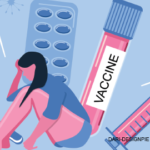Patients are quickly learning to use this technology, [because] they need to be connected to essential sources of support and feel a sense of continuity and community. Our group members share that the opportunity to see, speak and connect with us, [as well as] their peers who understand the specific challenges people with rheumatic illness face, are of particular value.
We’ve created staff forums to help support and learn from each other as we have transitioned to virtual platforms [and] to share vital information and lessons learned as these initiatives roll out. Much of our work with individual patients has also been done by teleconference, [because] many of our patients are at home. We are in the process of rolling out telemedicine for social work interventions, alongside our medical colleagues.
Q: What are your patients’ chief concerns about COVID-19’s specific effects on people with rheumatic diseases, such as increased infection risk or access to medications?
Many of my patients, all with some type of inflammatory arthritis, are on immunosuppressant medications. Many have comorbidities, which contribute to concern about [COVID-19] risk factors. Some patients have reached out to their rheumatologists for information and reassurance about staying on their medications or what to do should they start feeling ill. Already underlying, familiar concerns about being at higher risk for complications with viral and bacterial infections are now amplified by COVID-19.
I have spoken with patients who have not felt comfortable reaching out to their doctors, and some of these patients have decided, on their own, to stop their medications. Patients have shared guilt around contacting their clinicians due to reporting of how busy clinicians are with COVID-19 patients. We have worked with patients to proactively assure them the clinical team continues to be available to them, and they’re not adding an additional burden. Our discussions include encouragement and support to connect with their rheumatologists to discuss their specific clinical picture and to work out a plan together.
Some patients have had difficulty accessing medication or worry about when they’ll need to refill [their prescriptions]. We’ve helped problem-solve these issues, sometimes speaking to pharmacists or helping to find pharmacies with an adequate supply [of drugs].
Q: How are you and your staff helping patients manage the psychosocial effect of the pandemic on their daily lives?
Lives have been turned upside down. People are grieving the loss of normalcy, routine and being able to connect with friends, family, colleagues and loved ones—all while continuing to manage a chronic illness. Some of my work around this [subject] is helping patients find ways to feel more grounded in the present and take this day by day. This [help] involves supportive counseling, mindfulness and breathwork, and in part, sometimes simply acknowledging their experiences. When appropriate, using selective self-disclosure to underscore and acknowledge some mutual challenges and concerns we share during this time can be an important intervention.



